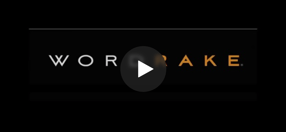Deciding between "Over" and "More Than"
Let’s examine a groundless grammar proclamation: That it is absolutely, unequivocally unacceptable to write over instead of more than.
Merriam-Webster’s Concise Dictionary of English Usage calls the spittin’-nails intolerance of some editors to accept over as equal to more than a “hoary American newspaper tradition.” That means the battle has a long white beard.
It all began in the 1860s, when poet and Editor-in-Chief of the New York Evening Post for 50 years, William Cullen Bryant—not to be confused with William Jennings Bryan, who ran for president three times—produced a list of forbidden words and “usages” he wished not to see from his writers and editors at the Post. He warned, “The words in this list are to be avoided.”
The first entry:
“Above and over, for ‘more than.’”
No explanation; just don’t do it. Bryant also preferred gentlemen to gents and pantaloons to pants, and shunned what he called “Wall Street slang,” like bulls and bears and long and short. The list grew into Bryant’s Index Expurgatorius, published in 1877, and because of Bryant’s stature as a romantic poet and editor of the Post, the Index became a bible for journalists.
While Bryant was terrorizing his staff at the Post, a journalist named Mark Twain had lit out for the Territory: the silver-mining, gold-panning, frog-jumping, horse-stealing, fist-fighting American West of the 1860s. When he wrote of his adventures in Roughing It, Twain either had never gotten Bryant’s memo or had ignored it when it arrived, because sometimes he uses over when he could have used more than:
“Two tons of silver bullion would be in the neighborhood of forty bars, and the freight on it over $1,000."
“The greater part of the vast floor of the desert under us was as black as ink, and apparently smooth and level; but over a mile square of it was ringed and streaked and striped with a thousand branching streams of liquid and gorgeously brilliant fire!”
And sometimes he uses more than when he could have used over:
“. . . an atmosphere of such amazing magnifying properties that trees that seemed close at hand were more than three mile away.”
“. . . as the saddle went down over the horse’s rump he gave it a lift with his heels that sent it more than four hundred yards up in the air, I wish I may die in a minute if he didn’t.”
And sometimes he has nothing to decide:
“I know I am not capable of suffering more than I did during those few minutes of suspense in the dark, surrounded by those creeping, bloody-minded tarantulas.”
Twain’s decision rides on whichever was handy at that moment and in that context.
Another influential journalist writing in the late nineteenth century, Ambrose Bierce, compiled his own list of words and phrases to avoid: WRITE IT RIGHT, A Little Blacklist of Literary Faults. Bierce warned against using “Over for More than” as in “A sum of over ten thousand dollars.” Newspapers that hadn’t followed Bryant now followed Bierce, and the “rule” spread to almost every newspaper stylebook in America: The Washington Post, Los Angeles Times, Associated Press. Ironically, Detroit Free Press adopted the rule even though the paper’s masthead read “On Guard for Over a Century.”
Almost two years ago, the Associated Press dropped the rule. The editor announced: “We decided on the change because it has become common usage.” It was never needed: Using over instead of more than had been around for about 600 years before Bryant or Bierce.
When appropriate, WordRake will replace more than with over. If you agree with Bryant and Bierce, hit the “Reject” button. That’s what it’s for.


